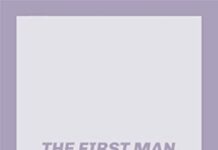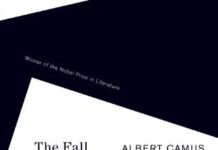
Ebook Info
- Published: 2012
- Number of pages: 360 pages
- Format: PDF
- File Size: 1.11 MB
- Authors: Albert Camus
Description
By one of the most profoundly influential thinkers of our century, The Rebel is a classic essay on revolution. For Albert Camus, the urge to revolt is one of the “essential dimensions” of human nature, manifested in man’s timeless Promethean struggle against the conditions of his existence, as well as the popular uprisings against established orders throughout history. And yet, with an eye toward the French Revolution and its regicides and deicides, he shows how inevitably the course of revolution leads to tyranny. As old regimes throughout the world collapse, The Rebel resonates as an ardent, eloquent, and supremely rational voice of conscience for our tumultuous times.Translated from the French by Anthony Bower.
User’s Reviews
Reviews from Amazon users which were colected at the time this book was published on the website:
⭐If your like me…and if this modern time and age we live in is building your hunger and thirst for Real Concrete Knowledge at a frightening Pace…… Consider this essay a Breakfast of Champions. From the start it will give you an Idea more less a Reality Check on yourself that not only applies to you and your life no matter how good or bad it is; but also speaks to the entire population on a Global scale. Brilliantly written and composed very well for the reader to dive into these ideas and concepts. A perfect illumination on some of the deeper workings of the Human ways of Thinking, Feeling and Evolving. Unorthodox and in a sense a little scary if you can grip the Very Real message the author displays and confronts. in my opinion this book brings Substance and Practical thought to the Intuitive triggers we All get in times of Desperation and Rebellion. I can easily give this a 10 star rating if you ask me, Its Easy, Intellectually and Intuitively Stimulating, yet Educational and Based on Concrete Fact as it touches on a bit of History and Historical Figures. Read it from Cover to Cover….Simply a Good way to spend 5 hours.
⭐Camus’ existential nihilism is beautiful, and joyful. I think that is what surprised me the most. “In the light, the earth remains our first and our last love. Our brothers are breathing under the same sky as we; justice is a living thing. Now is born that strange joy which helps one live and die, and which we shall never again postpone to a later time.”Camus radiates the warm, comforting, safe power of Europe in modernity, the Europe we all think of when we consider Paris, her poets and philosophers arguing late into the night under the protective golden dome of the city of light. They had survived two world wars, they had fought off the Stalinists, they had embraced themselves and increasingly each other – eschewing the weariness and sorrow of the immediate post-war days. Why not embrace the amazing art of living in the all-consuming “now”? The world is meaningless? Let’s fill it with pleasantness and love. Camus’ existential nihilism has nothing of Nietzsche’s cold German bitterness, it is an expression of joy.“The Rebel: An Essay on Man in Revolt” is Camus’ attempt to introduce a new humanism, one not rooted in Christianity, though the work is deeply religious even as it denies the power of faith to give life meaning; and it is clear that Camus himself understood a great deal about Christianity though this understanding appears to have been insufficient for his philosophy. Nor in atheistic thought, and Camus reserves harsh criticism for those who seek to replace “rebellion” with Revolution which is, to him, an act only of destruction. Camus’ is a “third way”, a Gnostic secularism, a new humanism with humanity at the center of the considerations of man.“The Rebel” is a treatise on rebellion – as man is a fundamentally rebellious creature, finding his own humanity in his acts of rebellion. “When you have once seen the glow of happiness on the face of a beloved person, you know that a man can have no vocation but to awaken the light on the faces surrounding him. In the depth of the winter, I finally learned within me there lay an invincible summer.”Camus rebellion is an act of awakening.He reserves especially harsh words for what he calls the ‘dandy’: “The dandy creates his own unity by aesthetic means. But it is an aesthetic of singularity and negation. ‘To live and die before a mirror’: that, according to Baudelaire, was the dandy’s slogan. (…) He can only exist by defiance. (…) The dandy rallies his forces and creates a unity for himself by the very violence of his refusal. Profligate, like all people without a rule of life, he is coherent as an actor. But an actor implies a public; the dandy can only play a part by setting himself in opposition. He can only be sure of his own existence by finding it in the expression of others’ faces. Other people are his mirror.” I think we all know who the “dandies” who claim the mantle of “rebellion” (maybe ‘resistance’?) are today, don’t we?In turn Camus reserves his greatest praise for the novel. “The world of the novel is only a rectification of the world we live in, in pursuance of mans’ deepest wishes. (…) The suffering, the illusion, the love are the same. The heroes speak our language, have our weaknesses and our strength. (…) But they, at least, pursue their destinies to the bitter end (…) they complete things that we can never consummate.” Camus, a novelist himself, sees the novel as the fulfillment of his rebellious existential nihilism, achieved through acts of creation which are the consummation of the human experience. “Every act of creation, by its mere existence, denies the world of master and slave. The appalling society of tyrants and slaves in which we survive will find its death and transfiguration only on the level of creation.”Camus existential nihilism is powerful because it is not bitter. It takes no time shaking its fist at fellow man. Nor does it shake its fist at the creator in heaven, accepting what we have here as our lot and finding the joy in our acts of rebellious creation. “’I believe more and more,’ writes Van Gogh, ‘that God must not be judged on this earth. It is one of His sketches that has turned out badly’.” In that, at least, Camus and I are in full agreement.
⭐Albert Camus is known mostly for his novels which investigate human existence – that is, existentialism as a philosophy. His characters question whether there is meaning in human life or not at all (nihilism). This work, however, is not a work of fiction but of non-fiction. In it, Camus expounds on the nature of human rebellion against the present state of affairs – that is, against the meaninglessness of life. He examines this rebellious act historically and spiritually, from Christianity and the French Revolution all the way up to Nazi Germany and Fascist Italy.Writing after Europe twice almost killed itself in horrific wars, Camus tries to explain how such an “enlightened” continent could almost implode in what was supposed to be a glorious twentieth century. He writes how rebellion, however well-intentioned, can often go awry and turn into nihilism. He writes about how too often, rebels are misguided in their attempts to find the “end” of history (a la Hegel). In its place, he suggests work and human unity ought to occur. This last point, he does vaguely and without specifics – a weakness of his viewpoint.Camus’ examination is very European. (In fact, a deep understanding of European history and literature is almost prerequisite for reading this work.) It is likewise very philosophical. I could only digest in it 20-30 page segments without being too inundated with too many thoughts to process. Unlike his novels (of which I am a huge fan), this pure philosophy lacks the ploys of plot and intrigue to push the reader forward. I doubt that the general reader can access this work.Camus’ views helped shape the post-World-War-II consensus in Western Europe of socialist democracies. For that reason, he deserves to be reckoned with. He won the Nobel Prize in Literature, and his writings are still standard fare in university coursework. I find his worldview very relevant to twenty-first century life. Fans of philosophy and existentialism will appreciate this work as well as fans of European history. Students of political history might also benefit from this work. Those turned off by the “otherness” of such pursuits (which incorporates much of the American reading public) might choose to read his novels instead.
⭐Degree completed
⭐This is a really fine work. The essays trace the development of rebellion in the twentieth century and show how the rejection of God, nihilism, and power lead us to terror. His readings of Sade, Nietzsche, and others are deft and insightful. His prescription for a careful solidarity, and for thinking through where and how we draw boundaries is timely. Camus asks us not to draw boundaries to exclude and create the “other,” but to mark spaces of value. Great stuff!
⭐Great book in great condition. Delivered on time.
⭐Albert Camus. What more is there to say? “et scripsit ergo furor.” He wrote, therefore, I read.”
⭐Ive read a few of Camus works and this one i really enjoyed.it was hard to read at time but there came a point it all clicked and made sense and i cant help but consider his ideas in the current times. Im very happy i read this book, id recommend it to others interested in Camus ideas.
⭐Intriguing premises but takes concentration from the reader.
⭐No one said French existentialist literature would be easy. Parts of “The Rebel” are poetic and lovely, other parts dense to the point of losing me completely, even when I reread sections multiple times. Worth it for the beautiful passages I underlined. Long stretches on the French Revolution, and on Marxism. Interesting thoughts on distinguishing the absurdist/humanist goals of rebellion from the totalitarian goals of revolution. Worth reading, if you’re ambitious.
⭐Normally I wait for a book to get over so that I can move on with my life. This wasn’t one of them. I didn’t want to finish reading this book because it was absolutely brilliant. Camus wrote as if no one other than him existed in the world. He was not afraid to express his views in The Rebel. I found a lot of enlightening quotes. I can see why he won the novel prize in literature. I read some of his earlier works like The Stranger, The Myth of Sisyphus and The Plague a few years ago. The Rebel is different and it made me think deeply about various matters in my life. It inspired me.
⭐Avoid the Kindle version – it is a mess. Every word in the book is underlined, and there is no vertical spacing where there should be (such as in numbered lists, new chapters, etc.). It is as if someone copy and pasted a version of the work stripped of its formatting, except for some reason underlining everything. The page number is a a mess as well, jumping up by eight pages instead of one each time. Returned.
Keywords
Free Download The Rebel: An Essay on Man in Revolt (Vintage International) in PDF format
The Rebel: An Essay on Man in Revolt (Vintage International) PDF Free Download
Download The Rebel: An Essay on Man in Revolt (Vintage International) 2012 PDF Free
The Rebel: An Essay on Man in Revolt (Vintage International) 2012 PDF Free Download
Download The Rebel: An Essay on Man in Revolt (Vintage International) PDF
Free Download Ebook The Rebel: An Essay on Man in Revolt (Vintage International)


